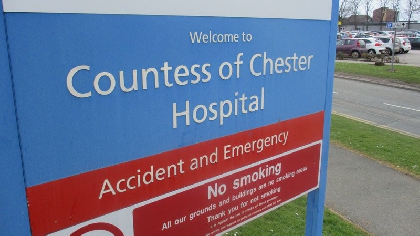
The Countess of Chester Hospital NHS Foundation Trust is embracing cutting-edge Artificial Intelligence (AI) tools to speed up diagnosis, free up consultant time and improve the patient experience.
This will deliver faster and more efficient care that meets the needs of a growing patient population.
This week [9 June] marks six months since the Trust rolled out its innovative Dermatology AI clinic across the skin cancer screening service – and the results so far have been a success. This advanced technology analyses images of skin lesions to quickly and accurately identify potential cancers. Around 30% of patients referred are safely discharged without needing a consultant appointment, meaning faster access to specialist care for those who need it most.
This milestone is part of the Trust’s wider commitment to placing AI-driven digital innovation at the heart of its plans to transform and improve healthcare locally. By using advanced technology, the Trust is simplifying how patients move through their care journey, helping them to get the right treatment sooner, improving results, and using NHS resources wisely.
In addition to Dermatology AI, the Trust is expanding the Surgery Hero digital prehabilitation programme. This uses AI to spot surgical patients at high risk of complications and offers them personalised health coaching to reduce those risks. More than 800 patients across the region have benefited so far, experiencing fewer post-operative complications and shorter hospital stays.
The Trust is also trialling AI tools to help administrative staff with tasks like taking meeting minutes and dictation, freeing up valuable time so frontline teams can focus on patient care.
Doctor Eva Domanne, Dermatology Consultant at the Countess of Chester Hospital NHS Foundation Trust, said:
"Being referred for a suspected skin cancer can be an incredibly anxious time for patients and their families. Our Dermatology AI service is helping to ease that worry by giving many people faster answers and peace of mind. And for those who do need treatment, it means we can act quickly and ensure they’re seen without unnecessary delays. It's a smarter, more patient-focused way of delivering care."
Consultant Anaesthetist Woei Lin said:
"Facing surgery can feel daunting, especially for patients at higher risk of complications. Surgery Hero gives people the tools, support and confidence to take an active role in preparing for their operation. We know that patients who go into surgery feeling more informed and in control tend to feel less anxious, recover faster, and report a more positive overall hospital experience. This approach helps them get back home – and back to living – sooner and healthier."
Jason Bradley, Director of Digital at the Countess of Chester Hospital NHS Foundation Trust, said:
"For patients, the real value of AI is in the difference it makes to their care — quicker answers, less time waiting, and more personalised support when they need it most. Whether it’s speeding up diagnosis or helping someone feel more prepared for surgery, these technologies are helping us care more effectively and compassionately. As part of our Transforming Care Together 2024 strategy, we’re putting digital innovation at the heart of our efforts to build a more responsive, sustainable NHS for the people of Chester and beyond."
Looking ahead, the Trust is developing a number of exciting AI projects to help improve care for patients. These include tools that can help spot signs of cancer earlier through improved scanning, virtual assistants to support busy clinical teams, and a new system that can quickly find and pull together the right patient information from our records. This will help staff make faster, better-informed decisions, reduce delays on planned treatments, and ensure hospital data is more accurate. These digital innovations are all part of our commitment to using technology to improve patient care and make journeys through the hospital as smooth as possible.
By bringing in AI-driven innovations, the Countess of Chester Hospital is speeding up, improving, and personalising care for patients, while helping to tackle wider NHS challenges around delivering efficient and sustainable healthcare for the local community.


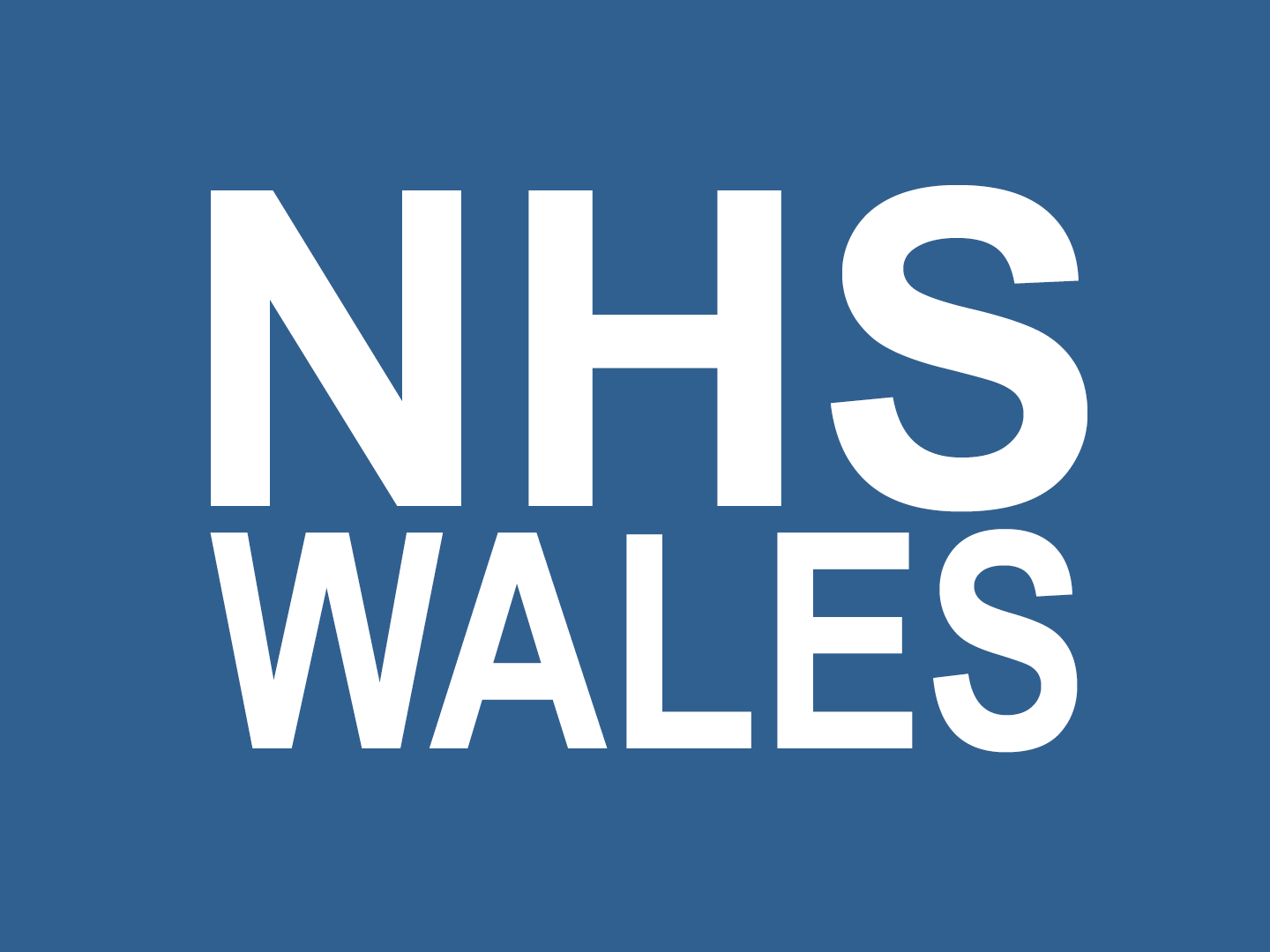 Calls to end corridor care in NHS Wales
Calls to end corridor care in NHS Wales
 NEW SPECIAL EXHIBITION: ‘Ukraine’ at the Cheshire Military Museum
NEW SPECIAL EXHIBITION: ‘Ukraine’ at the Cheshire Military Museum
 Council uses powers to close shops selling illegal vapes and tobacco products
Council uses powers to close shops selling illegal vapes and tobacco products
 Public consultation on the future of public toilets at Holywell, Mold and Talacre
Public consultation on the future of public toilets at Holywell, Mold and Talacre
 Man jailed for 16 years after being found guilty of rape
Man jailed for 16 years after being found guilty of rape
 Ellesmere Port community projects awarded share of Police and Crime Commissioner’s £150k fund
Ellesmere Port community projects awarded share of Police and Crime Commissioner’s £150k fund
 Chester community projects awarded share of Police and Crime Commissioner’s £150k fund
Chester community projects awarded share of Police and Crime Commissioner’s £150k fund
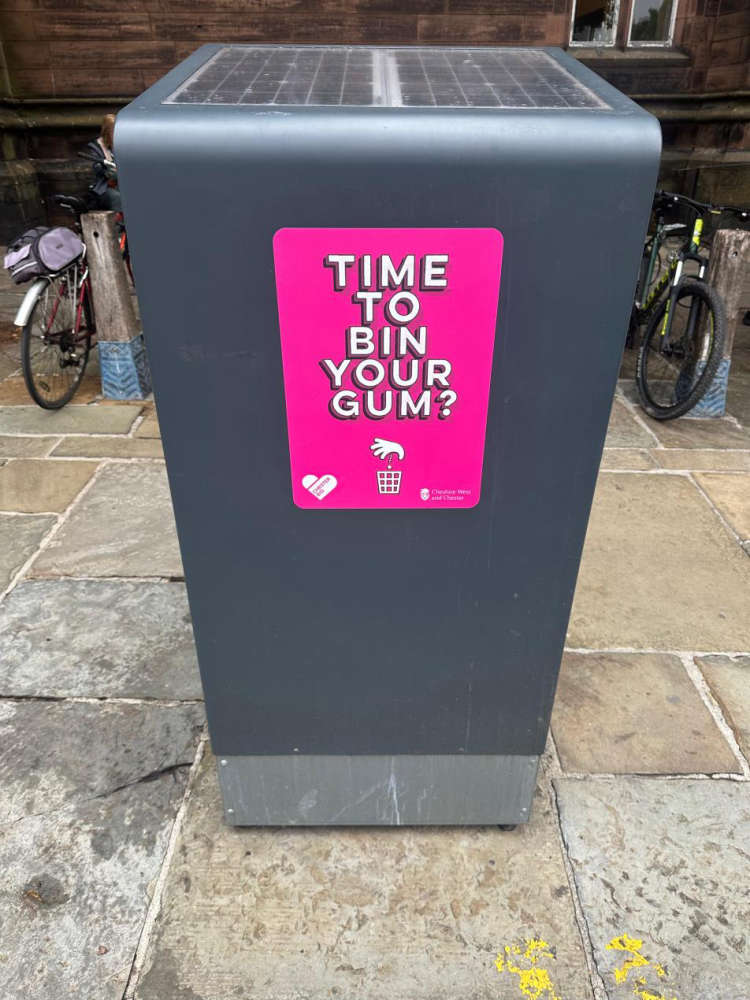 Council completes chewing gum cleaning project
Council completes chewing gum cleaning project
 Chester Market celebrates three years of success
Chester Market celebrates three years of success
 Chester and Wirral Football League - Latest Results
Chester and Wirral Football League - Latest Results
 Blues Match Report: Chester FC 1 - 1 Marine
Blues Match Report: Chester FC 1 - 1 Marine
 Wanted man from Ellesmere Port arrested and charged
Wanted man from Ellesmere Port arrested and charged
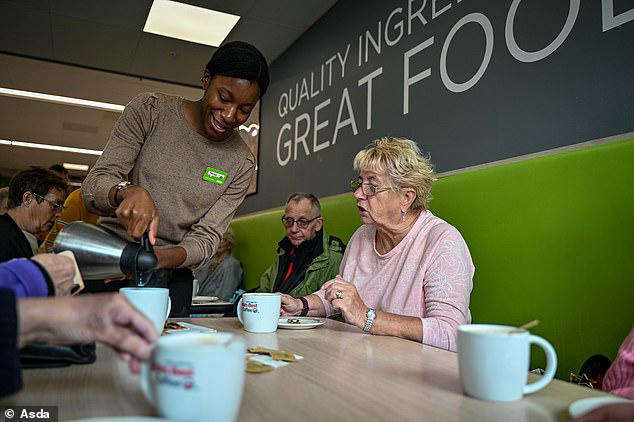 'Winter Warmer' initiative for local over 60’s in North Wales
'Winter Warmer' initiative for local over 60’s in North Wales
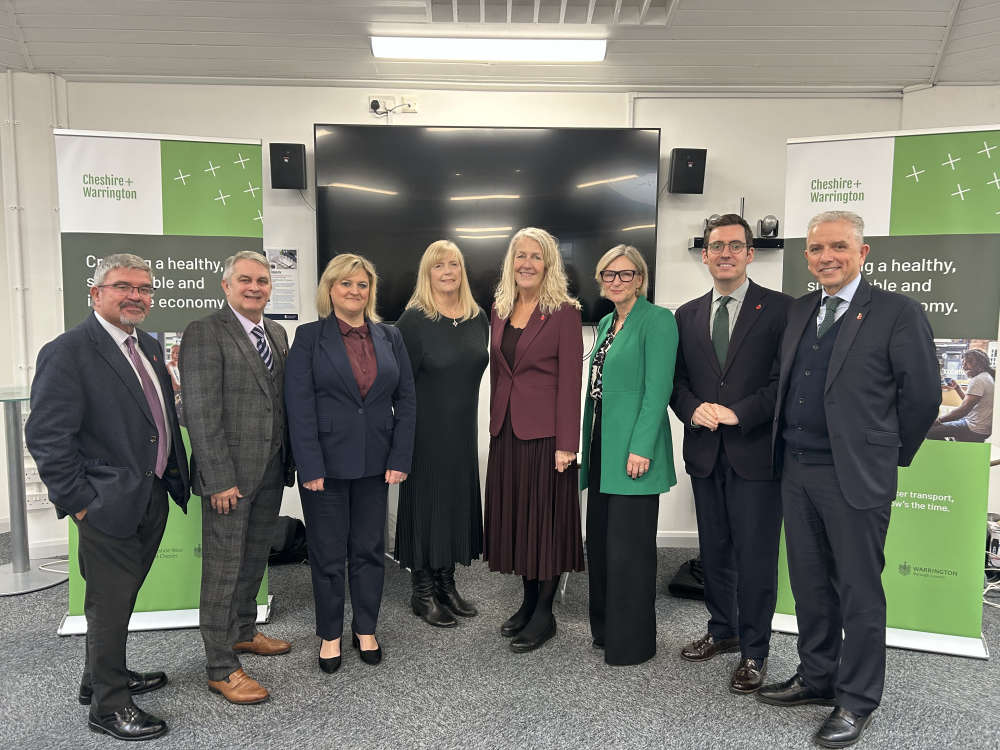 Inaugural meeting of the Cheshire and Warrington Combined Authority Shadow Board
Inaugural meeting of the Cheshire and Warrington Combined Authority Shadow Board
 Cheetah brothers arrive at Chester Zoo
Cheetah brothers arrive at Chester Zoo
 Ex-Chester FC star helps create stunning poppy tribute
Ex-Chester FC star helps create stunning poppy tribute
 FREE CHESTER CONCERT SET TO CELEBRATE WORK OF RENOWNED NORTH WEST BASED COMPOSER
FREE CHESTER CONCERT SET TO CELEBRATE WORK OF RENOWNED NORTH WEST BASED COMPOSER
 MUSIC BY RENOWNED WELSH FEMALE COMPOSER TO FEATURE IN WREXHAM ORCHESTRA REMEMBRANCE CONCERT
MUSIC BY RENOWNED WELSH FEMALE COMPOSER TO FEATURE IN WREXHAM ORCHESTRA REMEMBRANCE CONCERT
 Blues Match Report: Cambridge United 3 - 0 Chester FC
Blues Match Report: Cambridge United 3 - 0 Chester FC
 Blues Match Preview: Cambridge United v Chester FC
Blues Match Preview: Cambridge United v Chester FC
Comments
Add a comment